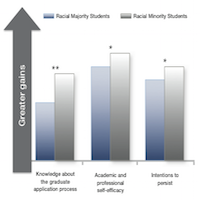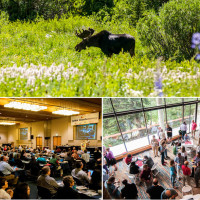Updates from CISE
It was great to see so many of you during this summer’s CRA Snowbird conference! The talks were great and the side conversations stimulating. To keep the dialogue going, I want to highlight some of our upcoming activities.

Archive of articles published in the 2014 issue.
It was great to see so many of you during this summer’s CRA Snowbird conference! The talks were great and the side conversations stimulating. To keep the dialogue going, I want to highlight some of our upcoming activities.

The Computing Community Consortium (CCC) invites proposals for visioning workshops that will catalyze and enable innovative research at the frontiers of computing. Successful activities will articulate new research visions, galvanize community interest in those visions, mobilize support for those visions from the computing research community, government leaders, and funding agencies, and encourage broader segments of society to participate in computing research and education.

Jane Stout, Director of CRA’s Center for Evaluating the Research Pipeline (CERP), is the PI on a three-year grant recently awarded to CRA by NSF for the amount of $783,975. The project, entitled Promoting a Diverse Computing Workforce: Using National Survey Data to Understand Persistence Across Undergraduate Student Groups, will use data collected from CERP’s Data Buddies program, to understand predictors of student retention in computing, with specific focus on the experiences of underrepresented groups. Data collection for the project will begin during the fall of 2014, and track students’ successes and persistence through 2017.
This fall, CRA is implementing a major upgrade to the Taulbee survey. Why a new Taulbee? We began with the goal of developing the long-requested ability for each department to select an individual peer group and compare key results. As we looked into it, we realized that the entire Taulbee process needed improvement. There were too many user-unfriendly aspects to the online interface, too many ways for bad data to slip through, and too many manual steps in the analysis. We wanted to provide peer group reporting, but even more than that, we wanted to improve the timeliness and accuracy of information available to the computing community.

The Computing Community Consortium (the “CCC”) was created to catalyze and enable computing research, to promote “audacious thinking”, and to align the interests of the computer science community with problems of national interest. Since its beginnings in 2006, the CCC, under the leadership of its founding chair, Ed Lazowska, and founding vice-chair, Susan Graham, has unquestionably had a transformative impact through its Visioning workshops, Visions and Challenges conference tracks (now Blue Sky Ideas Tracks), the Leadership in Science Policy Institute, the Computing Innovation Fellows program, and more. Major multi-agency funding programs, including Big Data, the National Robotics Initiative, and Smart and Connected Health, have all been influenced by the CCC in one way or another.

CERP recently compared critical outcomes of 187 undergraduate computing students who had participated in a formal research experience (REU) during the 2012 academic year. Students of racial minority who had participated in a REU reported greater gains in (a) knowledge about the graduate admission process, (b) academic and career self-efficacy, and (c) intentions to persist in computing compared to students of racial majority. These findings suggest that REUs in computing provide students of racial minority with an opportunity to be better prepared to apply for graduate study and develop self-efficacy. Further, formal REUs may be a particularly effective strategy for facilitating the matriculation of racial minority students through the computing pipeline.

The leadership of North American computing research community convened July 20-22, in Snowbird, UT. The biennial CRA Conference at Snowbird is our flagship conference where the leadership of the computing research community gathers to network and discuss common issues concerning the future of the field.

The following is a special contribution to this blog by CCC Executive Council Member Mark Hill and workshop organizers Luis Ceze, Associate Professor in the Department of Computer Science and Engineering at the University of Washington, and James Larus, Full Professor and Head of the School of Computer and Communication Sciences at the Ecole Polytechnique Federale de Lausanne.

Details on New Council Members, Aging in Place Workshop, Uncertainty in Computation Workshop

Conquer: A new website on undergraduate research and graduate school for students, mentors, and advisers; CRA Hosts 2014 Tisdale Fellows Luncheon; Taulbee Heads-up: Changes to the CRA Taulbee Survey for Fall 2014, Anne Condon Receives Technical Leadership ABIE Award

The CRA-W Borg Early Career Award (BECA) is named in honor of the late Anita Borg, who was an early member of CRA-W and an inspiration for her commitment to increasing the participation of women in computing research. BECA targets women who are relatively early in their careers (at most 8 years post-PhD) with the goal of encouraging active contributions to helping increase the number of women in the computer science and engineering research community. The annual award is given to a woman in computer science and/or engineering who has made significant research contributions and who has contributed to her profession, especially in outreach to women. The award recognizes researchers in both academic and industrial/government research lab settings who have had a positive and significant impact on advancing women in the computing research community while serving as exemplary role models.
This website uses cookies so that we can provide you with the best user experience possible. Cookie information is stored in your browser and performs functions such as recognising you when you return to our website and helping our team to understand which sections of the website you find most interesting and useful. You can adjust all of your cookie settings.
